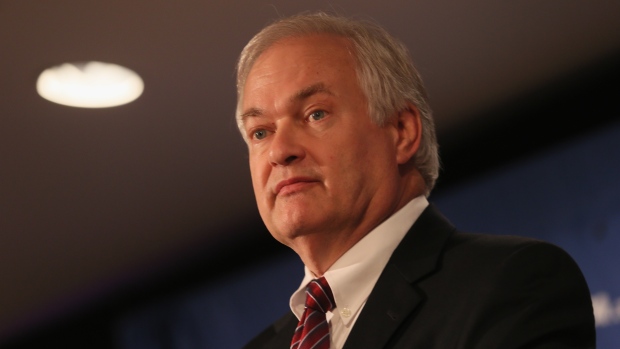Mar 26, 2020
Like NHL, Fehr says having full 2020-21 season important
NHL deputy commissioner Bill Daly has said numerous times that having a full 82-game season in 2020-21 is paramount. NHLPA executive director Donald Fehr agrees, but like Daly, says that doesn't mean next year's start date can't be pushed back to accommodate playoff hockey this summer.
TSN.ca Staff

NHL deputy commissioner Bill Daly has said numerous times that having a full 82-game season in 2020-21 is paramount. NHLPA executive director Donald Fehr agrees but, like Daly says, that doesn't mean next year's start date can't be pushed back to accommodate playoff hockey this summer.
"It doesn’t mean that you couldn’t alter the dates of next year’s season a little bit in order to accommodate playing late this year going forward," Fehr said Wednesday while on The Athletic's Two-Man Advantage podcast, hosted by Pierre LeBrun and Scott Burnside. "But remember, while players get paycheques over the course of the regular season, their salaries include revenue that’s earned during the postseason, so the two are not divorced."
Fehr discussed a wide-range of topics related to the COVID-19 pandemic and how it relates to a possible resumption of play this season in the NHL.
Earlier this week, the NHL reached out to its 31 teams and requested available dates for possible home games in August.
With the postponement of the Tokyo Olympics, Fehr noted there could be additional fan and broadcast opportunities that weren't there before if the NHL can get back on the ice for August hockey.
"The question is, if that’s when the time becomes available, does it make sense to play it? I was not aware before the press reports that all of the teams were being asked for their availability, but I certainly would have expected that in the ordinary course. That’s one of the things that the league would always do so that you have the most current information available," explained Fehr on the podcast. "What changed in the last couple of days, of course, was the decision to postpone the Tokyo Olympics, and when that happened that created, from a fan perspective and a broadcast perspective, some opportunities that might not have been there before. Whether we’ll be able to exercise those opportunities remains to be seen."
As for what the conclusion of the regular season or playoff format might look like if the NHL does return this summer, Fehr says the players have a lot of ideas, but nothing concrete.
"The question is, if that’s when the time becomes available, does it make sense to play it? I was not aware before the press reports that all of the teams were being asked for their availability, but I certainly would have expected that in the ordinary course. That’s one of the things that the league would always do so that you have the most current information available," said Fehr." What changed in the last couple of days, of course, was the decision to postpone the Tokyo Olympics, and when that happened that created, from a fan perspective and a broadcast perspective, some opportunities that might not have been there before. Whether we’ll be able to exercise those opportunities remains to be seen."
If hockey does return this summer, one major issue the NHL and NHLPA will have to deal with is how they handle the off-season. They've already postponed June's draft, with free agency still slated to start on July 1. Fehr said there are more questions than answers at this point, but adjustments will be made if necessary.
"When we get to that point, I think it’s fair to say that if you’re going to play the season or the postseason and that extends past June 30, there are a whole series of accommodations you have to look at," he said. "Starting with when do you do the draft? When would you do the normal June buyouts? When would free agency and salary arbitration happen and all the rest of that? My assumption has been, and continues to be, that those things will sort of tend to define themselves and people will have to adjust to them. That’s a problem, quite frankly, I’d like to have because that would mean that we are able to resume before next year."
With this being an unprecedented time for the NHL and the rest of the sporting world, Fehr says the NHLPA's working relationship with the NHL remains "businesslike."
“There is no posturing, there is no attempt, so far, to take advantage of this or that or the other,” Fehr said. “It’s just, all right, what can we do when? And the backdrop, of course, being that you want to maintain to the greatest extent you can, or to put it another way, you don’t want to put in jeopardy the health and safety of the players, the NHL employees, the arena staff, fans and all the rest of that," said Fehr. "But practical and businesslike is the way that I would put it, and, at this point, I would expect that to continue. We talk at one level or another to NHL people several times a day, every day.”

